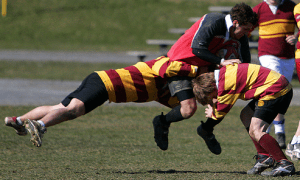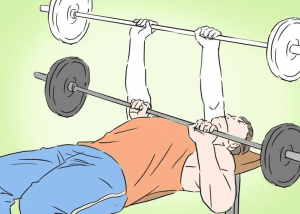Everybody needs a break in the off-season, whatever your chosen sport and whatever level you play at, writes Lauren Dobson
But when you return to action, what are the best ways to prepare yourself for the new season?
Professional environments will be structured in everything they do. But for the amateur sportsman or women, what is the best way to go about your business when it your responsibility?
What you do in the off-season can impact the following season in a massive way and a lot of people struggle to maintain a basic level of fitness that will put them in good stead for the months ahead.
There are two main ways of training the body. The cardiovascular system delivers oxygen to the muscle cells for them to use. When you stop training, those cells lose most of what they have gained fairly quickly and the cardiovascular system will slowly reduce the efficiency of delivering oxygen to them.
In short, it is so much quicker to lose fitness than to gain fitness. It can be very easy to get out of shape and, unfortunately, much harder to get it back.
So what can be done to maintain fitness through the off season to stop pre-season being so challenging as you attempt to reach your fitness goals.
The off-season is the best time to focus on building strength as the stress of competition, training, collisions and intensity is removed.
Maximal strength is the base of which speed, power, endurance and physical qualities are built. The stronger you are, the faster you can run. The more stamina you have, the longer you last on the pitch and the stronger and more effective you can become as a player.
It’s not stretching the point to say that good conditioning can change you from a player taking up space on the bench, to a consistent performer and leader on the field.
Most amateur team players have limited time to commit to physical preparation so it’s important to use this time wisely and maximise the gains from the time you do have available. Just because it’s a hobby, it doesn’t mean you can’t prepare yourself to perform at your best when the new season comes round.
A big part of the off-season is to freshen the mind and body to boost the enjoyment levels for the season ahead. Any break is important and serves the same purpose as a holiday.
Other things to consider in the off-season is nutrition and health. If you reduce activity volume, you will reduce the number of calories that are burnt, so calorie intake is important. There are some players who may need to use this time period to lose weight to improve their performance, but don’t make these decisions without some good advice and knowledge before you set your goals.
Rest is also important, so take some time off and enjoy it. It is wise to have a recovery phase; allowing your body and mind to heal from the demands of progressive training.
I am not, however, encouraging you to become a couch potato. Follow a week or two dedicated rest and a gradual return to activity. Set yourself easy targets with reduced aerobic effort level. This is a perfect time to get on the bike or run without worrying too much about pace.
The goal is to recover and rejuvenate, then move into a phase that is geared towards progressions. As pre-season comes to an end, you should be finishing on your peak phase, ready to return to full training and match situations.
Initially there needs to be a reduction in frequency. Reduce your training days by a third but maintain the training intensity and duration. This will help you maintain endurance.
Alternatively, by reducing your minutes per session by a third and maintaining the frequency and training intensity, you can also maintain your endurance
Maintaining training intensity is key.
Water polo is good for maintaining endurance
A good method for achieving and maintaining these fitness components and your goals is the use of modified anaerobic games. Modified games not only train the metabolic systems, both aerobic and anaerobic, but also speed, acceleration and agility. They also help vision, awareness and decision-making.
Some examples of modified games for rugby, hockey and football are: softball, volleyball, water polo, circuit training and rounders.
All of these sports/activities can be adapted and rules changed to improve strength, agility and team development.
For example, planning any activity under a similar structure to volleyball but when a point is lost, the opposing team will forfeit and a player, who will be removed from the court until there will eventually be 1v1 competing.
When we want to set programmes to improve strength, we want to work in repetition ranges and use weights that are not maximally effective for building strength.
Set a programs around the ‘Three to Five Rule’ – 3 to 5 exercises for 3 to 5 sets of 3 to 5 reps each session.
For example, Session 1:
Squat, bench press, deadlift – 3 sets of 5
Session 2;
Powerclean, squat, push-press – 3 sets of 5
Session 3;
Weighted pull-ups, lunges, medicine ball slams – 3 sets of 5
Make sure to progress to heavier weights as long as you can maintain the form.
Finally don’t forget other activities such as self-massage (foam rolling, trigger ball release), mobility work, flexibility and core. Most importantly, make sure you listen to your body and seek help/advice where needed.
We are always here to help at Function Jigsaw so have fun and freshen up for the season ahead.









